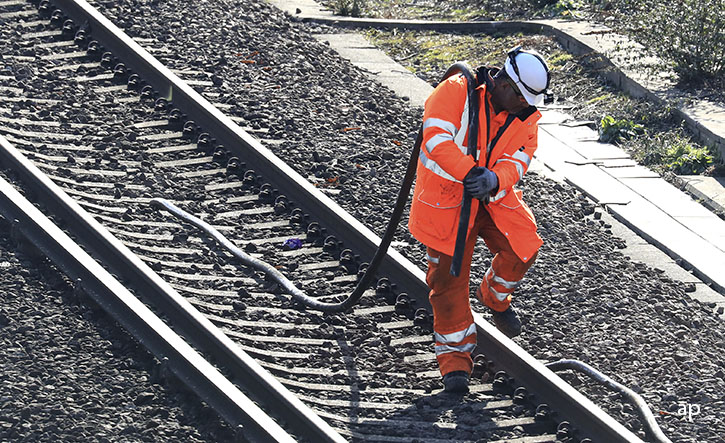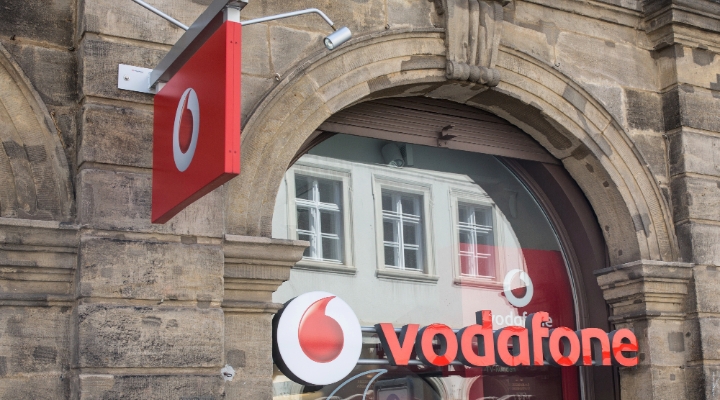
Inflation Confounds Again
Was it really only a week ago that Jeremy Hunt claimed inflation would be 2.9% by the end of the year? His Budget prediction is already looking a tad optimistic, with inflation rising again this week to 10.4%, driven by higher food prices. The “persistence” of higher costs in consumer prices was cited as one of the reasons why the Bank of England raised interest rates by a further quarter point on Thursday. The BoE governor Andrew Bailey has since urged businesses not to raise prices further, in a bid to break this inflationary cycle. All of which doesn’t exactly create an air of confidence that inflation will get back to 2.9% any time soon. We now have the highest mortgage rates fuel and food prices for a decade. Fiscal tightening seems unlikely to solve ongoing food supply issues. We might avoid a technical recession, but this is all going to mean that it will continue to feel like one.
Cocos Popped
Do you know your contingent convertible bonds (CoCos) from your tier 2 subordinated debt? The UBS rescue of stricken bank Credit Suisse has certainly highlighted the risks of investing in these higher risk bonds.
Investors who held Credit Suisse additional tier 1 (ATI) bonds or CoCos — have seen the value of their holdings completely wiped out, as part of UBS’s rescue package. This has caused waves in financial markets, as this put these bondholders behind shareholders.
Most ordinary investors are unlikely to be direct holders of these specialised debt instruments, but many funds have exposure to these Credit Suisse bonds — and AT1 debt at other banks. This article gives more information on which funds have been affected by this latest market fallout. It seems that each financial crisis highlights the potential perils of complex financial products — with collaterised debt obligation (CDOs), which bundled high-risk mortgages in with other loans and assets, widely being seen as one of the aggravating factors precipitating the 2007-08 global financial crash.
All at Sea
DP World, the Dubai company that owns P&O Ferries, paid directors and managers $18.9m (£15.5m) last year in salary and bonuses – up from $17m the year before according to latest published accounts. This bumper payout comes after the company sacked hundreds of employees on its UK ferries without warning last year, replacing them with workers on lower wages and less secure contracts. Directors of DP World will share this largesse, but it is unclear whether Peter Hebblethwaite, P&O’s CEO, who was voted Britain’s worst boss last year, will be in line for a payout. Last year he admitted breaching rules by not consulting with the unions on job losses, but suggested the business was not viable without this action.
Red Mist Descends
It’s like the old saying “poacher turned gamekeeper” has been updated for more modern times, with rogue traders becoming banking fraud investigators. Nick Leeson, the derivatives trader whose misdeeds led to the collapse of Barings Bank back in the 1990s, has been hired by a corporate intelligence firm to investigate market abuse and possible fraud. The firm, Red Mist, also has the former UBS trader convicted for rigging the interest rates benchmark Libor on its payroll, although in this case the trader, Tom Hayes, is still seeking to overturn this conviction. Leeson, who served time in a Singapore jail, acknowledges chronic understaffing at regulators, like the FCA, has led to companies turning to private investigators to uncover potential financial problems. The collapse of Barings inspired the film Rogue Trader, with Ewan McGregor in the title role. Could a sequel could be in the offing? Who you gonna call? Fraudbusters?
Board Scuffles at Scottish Mortgage
Scottish Mortgage has delivered stellar returns for investors over the past decade, although returns have come off the boil more recently. This dip in performance – shareholders are looking at a 34% loss over the past year – seems to have led to some awkward questions being asked at board level. But rather than discussions being held behind closed doors, the investment trust has been airing it dirty linen very publicly.
One “rebel” director, Amar Bhide claimed the trust has insufficient safeguards around its illiquid investments, and criticised the trust’s chair, Fiona McBain, saying she “lacked independence”. He has now been sacked for breaching board confidentiality. Meanwhile McBain announced she will step down from her role in June. This board shakeup might not be the end of the affair, with Bhide reportedly seeking legal advice and claiming he has forwarded documents onto the FCA. The question for investors is what effect this management upheaval might have on returns — and when will Scottish Mortgage start delivering consistent returns again?
Money Down the Drain?
Regulators have said they will block privatised water companies paying dividends to shareholders if they fail to meet environmental or customer service standards. The new rules come after a number of complaints about water companies letting raw sewage leak into rivers and beaches. Ofwat said water companies will now have to take stock of their environmental performance and service standards alongside profit margins when setting dividend levels. It hopes this may focus minds in boardrooms: a failure to address these issues could mean that lucrative shareholder returns quickly dry up.
GBR - Great But Remote?
Derby has been chosen to be the HQ of “Great British Railways” a new centrally controlled body to oversee the country’s rail service. The only problem is that new GBR does not yet officially exist, following delays with the parliamentary timetable. At least no-one is blaming unseasonal leaf-fall. While Derby is no doubt celebrating being the new home of British Railways, it is bad news for Milton Keynes, currently the HQ of Network Rail, which recently spent £120 million building a new head office there for around 5,000 staff. Critics have pointed out that sadly there is no direct rail route between Milton Keynes and Derby, despite the fact they are only 68 miles apart. For employees needing to shuttle between the two offices it will be a two-hour trip with a change at Tamworth.
Gambling Commissions Talks Tough
There was further evidence this week of deep-seated problems in the UK’s gambling industry, much of which is based in offshore locations. 32Red and Platinum Gaming (both part of Malta-based Kindred Group) were the latest businesses to be hit with multi-million pound fines from the Gambling Commission, for failing to tackle issues around problem gamblers and for anti-money laundering failures. This follows similar action against 888, whose CEO subsequently quit. Fines have also been issued to Ladbrokes, Coral, and William Hill in recent years. Announcing this latest enforcement action, the Gambling Commission said other operators should “take note” of its findings. Though if you were a gambling man studying recent form you probably wouldn’t bet against this being the last enforcement action, without more radical reform of the sector.
Man Utd Bid Goes to Extra Time
Potential buyers for Manchester United might have thought it was all over, when the Wednesday 9pm deadline for submitting bids came and went. But the current US owners of the club, the Glazer Brothers, may be less familiar with thais famous football phrase. Fortunately for two of the highest profile bidders — Ineos boss Sir Jim Ratcliffe and Qatari banker Sheikh Jassim —the deadline was extended, giving them the opportunity to get revised bids in. This last-minute confusion has led to speculation that neither are prepared to pay the reported £6 billion price tag that the Glazers are reportedly asking for. With Manchester United’s footballing fortunes revived on the pitch in recent months it may be that the American duo rethink sale plans, with the hope of a more lucrative bid further down the line.
Amazon Staff Primed for Bad News
Amazon is to shed another 9,000 jobs worldwide as the tech industry continues to shrink at an alarming rate. This follows similar news from Meta last week, and is the second major round of redundancies at Amazon this year. The online retailer announced 18,000 job losses less than two months ago, on top of plans to shut three warehouses and seven delivery stations in the UK. This week’s cull will see jobs disappear from its cloud services, advertising and Twitch live-streaming units. Given the tech job merry-go round looks unlikely to end soon, we wait to see if it's Apple, Netflix or Microsoft handing out P45s on mass next week.











.jpg)

















